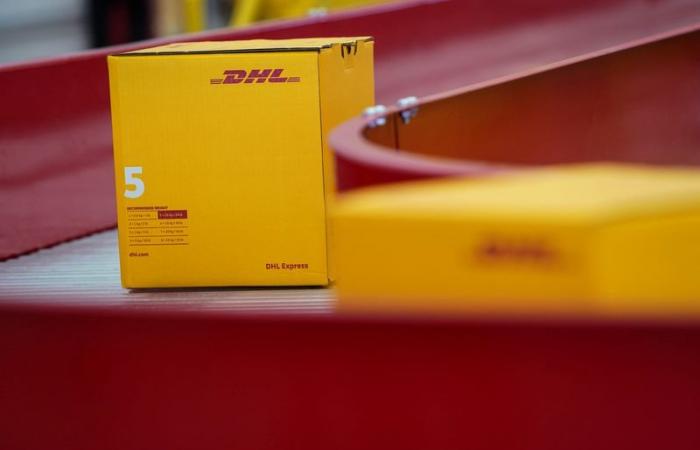Consumers will have to pay more for letters next year: The Federal Network Agency has given Deutsche Post the green light to increase postal rates.
The regulatory authority, however, grants the Bonn group less leeway to increase prices than the latter had requested. Swiss Post stressed that it could not work satisfactorily in the German mail sector with the proposals made. The group is reviewing the network agency's action and will then decide whether to take legal action, a spokesperson said. Shares of the Post's parent company, DHL, fell slightly.
The Federal Network Agency is giving Swiss Post leeway to increase mail prices by 10.48% on average from January to December 31, 2026, thereby confirming its initial proposals, the regulatory authority announced on Monday. Business mail is also expected to increase in this context. For parcels, individuals should pay on average 7.21% more. “I don't understand Swiss Post's demand for an even greater increase,” said the president of the Federal Network Agency, Klaus Müller. The regulatory authority already allows the Post Office “to significantly increase delivery rates”.
Swiss Post must now decide how it will use the room for maneuver on the prices of the different product groups. From a purely mathematical point of view, the price of the mass product that is the standard letter could, for example, increase from 85 euro cents currently to one euro from 2025 under the new framework. Proposals from the Post Office are expected in the coming days.
The Post Office had asked for more leeway for price increases and referred to high inflation and rising staff and energy costs as mail volumes fell. “It doesn't make economic sense,” financial director Melanie Kreis said of the Network Agency's proposals. “Mail rates remain (…) nevertheless too low,” said a spokesperson. An “ecologically and economically sustainable universal postal service is therefore not possible”. Swiss Post remains free to file a complaint against the Bundesnetzagentur before the Cologne Administrative Court. The regulatory authority, however, is calmly awaiting the legal procedures, we learned in authority circles.
The franking procedure is being applied for the first time in accordance with the provisions of the new Postal Act, which will also give the Post Office more time to deliver letters from next year. The main objective of the franking procedure is to ensure the financing of the universal postal service, that is to say coverage of the entire population, from Flensburg to Berchtesgaden. Swiss Post must submit its price proposals to the Federal Network Agency for approval. This then gives the green light if they are within the set framework.
Bonn's Dax Group has repeatedly stated in the past that it is aiming for higher mail prices, not least because of rising energy and personnel costs. “We need to catch up significantly,” said financial director Kreis. According to her, the Post Office was only able to increase mail prices by 4.5 percent over three years, despite high inflation. “That’s why increasing postage rates next year is a completely essential pillar for us to earn what we need.”
The group's mail business in Germany is suffering from competition from electronic communications such as email. Letter sending volumes are therefore in constant decline. Swiss Post is the German mail market leader and employs around 190,000 people in its mail and parcel activities in Germany. DHL Chief Executive Tobias Meyer announced in September that he wanted to create an independent company for the mail and parcel business in Germany to simplify the logistics giant's group structure. However, he assured that these projects did not constitute a step towards a separation of the mail activity. DHL also lowered its profit forecasts at the end of October due to weak shipment volumes in Germany.
(Reporting by Matthias Inverardi, editing by Olaf Brenner. For questions, please contact our editorial team at [email protected] (for politics and economics) or [email protected] (for business and markets ).






